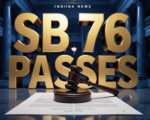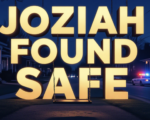Colorado Governor Jared Polis signed a bill in April 2023 that bans the sale and possession of “ghost guns” – firearms that are assembled from parts or kits and do not have serial numbers or background checks. The bill, known as HB21-1106, was one of several gun control measures passed by the Democratic-controlled legislature in response to the mass shootings in Boulder and Colorado Springs that killed 16 people.
However, the ban on ghost guns is now facing a federal lawsuit from two pro-gun groups that claim it violates the Second Amendment and the Commerce Clause of the U.S. Constitution. The groups, Firearms Policy Coalition and Second Amendment Foundation, filed the lawsuit on January 3, 2024, in the U.S. District Court for the District of Colorado. They are seeking a preliminary injunction to stop the enforcement of the ban, which took effect on January 1, 2024.
What are ghost guns and why are they banned?
Ghost guns are firearms that are made from parts or kits that can be purchased online or at gun shows without a background check or a serial number. They are also known as “80% guns” because the parts are typically 80% complete and require some drilling or milling to finish. Ghost guns can be made from metal, plastic, or even 3D-printed materials.
According to the bill’s sponsors, ghost guns pose a serious threat to public safety because they are untraceable and can be used by criminals, domestic abusers, and people who are prohibited from owning firearms. The bill’s sponsors cited several cases where ghost guns were used in crimes, including the 2019 shooting at a California high school that killed two students and wounded three others, and the 2020 shooting at a Milwaukee brewery that killed five co-workers and the gunman.

The bill requires anyone who owns a ghost gun to apply for a serial number from the Colorado Bureau of Investigation and pass a background check by July 1, 2024. It also prohibits the sale, transfer, or possession of ghost guns after January 1, 2024, unless the person has a valid serial number and background check. Violators of the ban could face a class 1 misdemeanor charge, which carries a penalty of up to 18 months in jail and a $5,000 fine.
Why are the pro-gun groups suing?
The pro-gun groups argue that the ban on ghost guns infringes on the right to keep and bear arms, as guaranteed by the Second Amendment. They claim that the bill’s definition of ghost guns is vague and overbroad, and that it criminalizes the possession of common and lawful firearm parts and accessories. They also contend that the bill violates the Commerce Clause, which gives Congress the power to regulate interstate commerce, by imposing Colorado’s regulations on firearm parts and kits that are sold or shipped across state lines.
The groups are represented by attorneys from the Independence Institute, a libertarian think tank based in Denver, and the Goldwater Institute, a conservative advocacy group based in Arizona. They are joined by three individual plaintiffs who are Colorado residents and gun owners who own or wish to own ghost guns.
The groups are asking the court to declare the ban on ghost guns unconstitutional and to issue a preliminary injunction to prevent the state from enforcing it. They claim that they will suffer irreparable harm if the ban is enforced, as they will lose their property rights, their ability to exercise their Second Amendment rights, and their ability to participate in the lawful commerce of firearm parts and kits.
What is the state’s response?
The state has not yet filed a response to the lawsuit, but Governor Polis and Attorney General Phil Weiser have previously defended the ban on ghost guns as a reasonable and necessary measure to prevent gun violence and protect public safety. They have also expressed confidence that the ban will withstand legal challenges, as it is consistent with the U.S. Supreme Court’s rulings on gun regulation.
In a statement issued after signing the bill in April 2023, Polis said, “We know that unregulated, untraceable, do-it-yourself ghost guns are used by people who are legally prohibited from buying guns to skirt the law and endanger our communities. This bill will help keep these dangerous weapons off our streets and out of the hands of those who shouldn’t have them.”
Weiser, who is responsible for defending the state’s laws in court, said in a statement issued after the lawsuit was filed, “We will vigorously defend Colorado’s reasonable and constitutional law to prevent the proliferation of untraceable firearms. This law is a common-sense measure to protect public safety and close a dangerous loophole that allows criminals and other prohibited persons to obtain firearms without a background check or a serial number.”
The case is Firearms Policy Coalition et al. v. Polis et al., Case No. 1:24-cv-00003 in the U.S. District Court for the District of Colorado.













